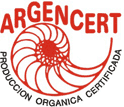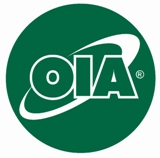Italian Organic Standards Join Family of IFOAM Standards
The International Federation of Organic Agriculture Movements (IFOAM) is pleased to announce the approval of the Italian Organic Standards, the first regional organic standards in IFOAM’s “Family of Standards” that have been reviewed and approved as being consistent with the IFOAM Basic Standards, the globally accepted international standards at the root of all organic standards.
Developed by a consortium of Italian certification bodies, the Italian Organic Standards represent the synchronization of their previously independent standards. In addition to assuring consistency
with the IFOAM Basic Standards, the consortium developed its standard to be consistent with the European Regulation 2092/91 as well. Participating organizations include:
Bioagricert (BAC)
BIOS
Consorzio per il Controllo dei Prodotti Biologici (CCPB)
Instituto Certificazione Etica e Ambientale (ICEA)
Instituto Mediterraneo di Certificazione (IMC)
The objective of establishing an IFOAM Family of Standards is to support the concept of regional variation in organic standards, while at the same time facilitating international harmonization of
regional standards. Regional standards are approved by IFOAM through a procedure that involves the review of the applicant’s standard against the IFOAM Basic Standard (IBS) and Criteria for
Variations from the IBS. Antonio Compagnoni, IFOAM World Board member from Italy, states, “The establishment of the Italian Organic Standard is an important step for the organic
movement. It allows organic standards to vary regionally, but crucially, ensures that they adhere to the democratic and grassroots standards of IFOAM, the foundation of all organic standards
worldwide.”
Applicant standards are approved by IFOAM if they are either fully compliant with the IBS or meet the Criteria for Variations. Approved regional standards are recognized by the International
Organic Accreditation Service (IOAS) in the IFOAM Accreditation process. Certification bodies that use an approved standard are exempt from the requirement of screening of their standard
during the accreditation process. Ken Commins, IOAS Executive Director, notes, “The establishment of regional standards will streamline and simplify the process of accrediting certifiers,
while simultaneously ensuring the integrity and credibility of the accreditation.”
“While governments jump on the bandwagon to create national organic programs and to politicize the standards setting process, the provision for regional standards in accordance with the IFOAM
Basic Standards will safeguard organic standards from political vagaries,” emphasizes IFOAM Executive Director Gerald A. Herrmann.
More details about organic standards can be found on IFOAM’s web page http://www.ifoam.org/about_ifoam/standards/index.html. Further information can be requested from the IFOAM Head Office
(Charles-de-Gaulle-Str. 5, 53113 Bonn, Germany, phone +49-228-92650-10).
|
|
|
|
IFOAM Press Release, Responsible: Gerald A. Herrmann, Contact: Neil Sorensen |
|
















